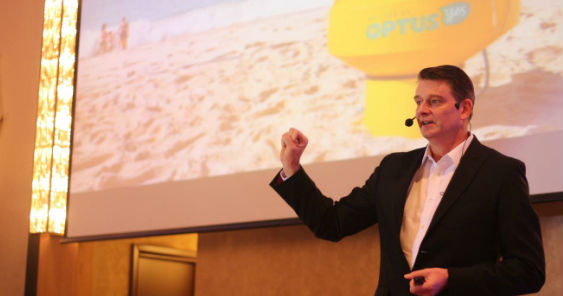by Anna Gamboa
MANILA – Taking off from his tough talk on establishing trust from the first adobo Tambuli APAC conference, McCann APAC CEO Charles Cadell started off his presentation last May 31, 2016 by wryly commenting at how advertising is the second least respected of the professions, next to banking.
“But we tell stories and sell products that make lives better,” he stated, while flashing a quote from Vance Packard about an old industry joke: “I tell my mother I play piano in a bordello so I don’t have to tell her that I work in advertising.”
So, where is the profession is going now in this age of change? For Cadell it’s headed for a better platform—where advertising is doing the world and client a favor by positioning on a platform for social good, while pointing out that companies with clear positioning for social good outperform or outsell companies that don’t. “We tell stories of products that make life better,” he says, while citing Lifebuoy’s handwashing campaign in India, where people, especially children are encouraged to observe this routine five times a day, to combat the 44% annual mortality rate of kids who die due to diarrhea borne of poor hygiene.
Advertising, for Cadell, isn’t all about shilling, but starting conversations that change behavior—at which point he flashes images of General Motor’s campaign in China, where real amputees stand on roads where careless motorists hit them; or Dove’s ongoing campaign on real beauty. The industry, in his opinion, has the resources to inspire innovations that create change, like Hana’s Water Billboard, the Optus Clever Buoy, and Flynet by Nike.
There’s now a seismic shift in how people engage with products, and now the question is what advertising must do to address this—now that marketing has been turned on its head—from products to product services. The start point is no longer the benefits for the consumer, but the value system. “Does this product or brand align with your values?”
The power of the master brands—where consumers are putting their trust—demonstrate that consumers are looking for brands and values that support their own. “Sitting on the fence is not a recipe for success,” Cadell quips, then continues on to show how consumers have given up on politicians and have turned their attention (and spending power) to brands/NGOs to make the change.
“Asia is social. Twenty-five percent of Asia’s four billion (1.3 billion) engage in social media.” And for Cadell, building trust is important in an era of social platforms—where brands like Apple, Google, and Microsoft have been raking in money and the confidence of the consumer.
With the assertion that the millennial generation being the most connected, hyper informed generation, on a mission to change the world—wanting and demanding change and willing to use the internet to effect change—it’s the establishment of core pillars like authenticity, credibility, listening and affirmation that will create a bond between the fickle consumer and product. “Ultimately, we’re not thinking animals. We’re feeling animals. We’re irrational,” Cadell shrugs, before going on to talk about the core pillars.
Credibility is important—and brands must deliver what they promise, and be able to handle negative reviews on- and offline, because it paradoxically establishes the “realness” of a brand and will leave a positive impact on sales, because nothing is 100% perfect.
Authenticity means having to display core values and KPI’s (like Ben & Jerry’s) and have full disclosure of the benchmarks. For Cadell, it was interesting to note that McDonald’s 13 YouTube videos addressing the “pink slime” issue had more hits than the entire TV campaign.
Listening, while seemingly simple, is a tricky act, as brands go out on a limb on social media. Do it well, and you have positive engagement (ex. #LikeAGirl). Do it badly and you’ll create online backlash (ex. Crocs’ David Bowie tribute was deemed crass/insensitive by many). In some cases, listening is also a fundamental defense which determines a brand’s ability to react in a crisis—such as Gap’s 24 hour response to the racist defacing of one of their posters which featured multi-ethnic personalities—which earned the praise of U.K.’s Sikh community. U.S. cereal brand Honey Maid featured diverse families in their campaigns—like two fathers having breakfast; a mixed race family—which resulted in some initial backlash from conservative groups, which was later overtaken by positive responses in a reactive online “Love” campaign that outperformed the original TVC.
Affirmation, for Cadell, is best embodied by the Walt Disney experience: pay for a ticket, get a continuous experience that keeps you feelng good about being in that park. “It also applies to the Catholic Church,” he cheekily added, before ending his talk by advising everyone that following the principles can not only result in doing good and helping the client, but improving the (ad) industry itself.
Is this greenwashing or is this real? McCann’s APAC CEO answers his own question with this statement: “Treat this with the respect that it deserves and be cognizant of the power of making the world a better place.”
(ending it with a smiley)









